
Purchase Tickets
Not Our First Pandemic…
April 8, 2020
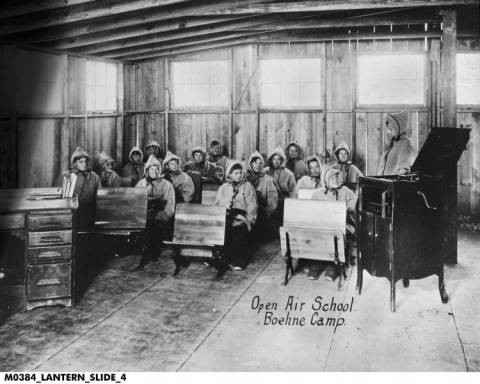
Many people know that Covid-19 is not our first pandemic in Indiana. One of the most notable happened about a century ago with the influenza pandemic in 1918-1919. At that time, schools were also closed, as evidenced by this quote from Earlee A. Griffin in a letter to Sergeant Irven Armstrong:
“We have had nearly four weeks vacation from school. It has been a contagious disease here known as the ‘Spanish Influenza.’ Several people died of it.”
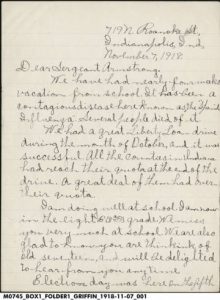
Letter from Earlee A. Griffin to Sergeant Irven Armstrong,
Indiana Historical Society, cropped
Of course, that particular pandemic coincided with World War I. In October, Indiana soldier, Earl Leland Fine, contracted Influenza in France, passing away the next month. One family friend writing a letter of condolence stated the following:
“We have conquered the Germans, but the Influenza is still every-where at work in the world. From our enemies of this kind we are helpless with all our vast equipment. There are enemies we can not fight with guns.”
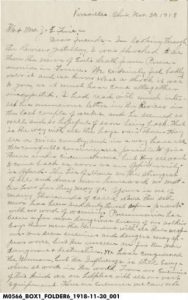
Condolence letter to Earl Leland Fine’s parents; Indiana Historical Society
Influenza hasn’t been the only public health crisis in Indiana’s past. Tuberculosis has reached epidemic and/or pandemic levels in our world’s history. It was prevalent through much of the early-mid 20th century Indiana. Opening of Fresh Air camps and schools helped the health of those who contracted the disease as fresh air was thought to be good for tuberculosis patients. Windows were left open year round to promote the flow of fresh air in buildings where patients were treated. In addition, campaigns to help people identify how to stop the spread were put out by various organizations, both local and nationwide.
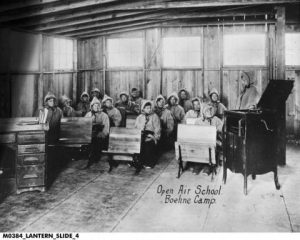
Open Air School at the Boehne Camp near Evansville; Indiana Historical Society
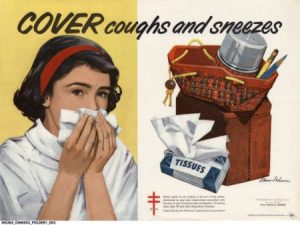
Poster created to aid prevention of the spread of disease; Indiana Historical Society
Humans are not the only species in which epidemics happen. In the 1870s, there was an epizootic (animal epidemic) of equine influenza among horses and mules. This killed many of these animals in Indiana. It got to the point where men had to pull wagons as there were few animals to do the job.
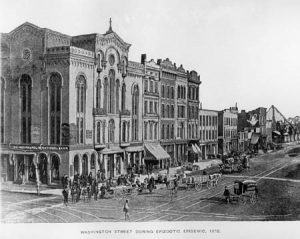
1872 Indianapolis during Epizootic Epidemic,
Bass Photo Co Collection, Indiana Historical Society
Epidemics and pandemics are to be expected even with our advancements in medicine. It is the manner in which we respond to them which will most be remembered by history.









